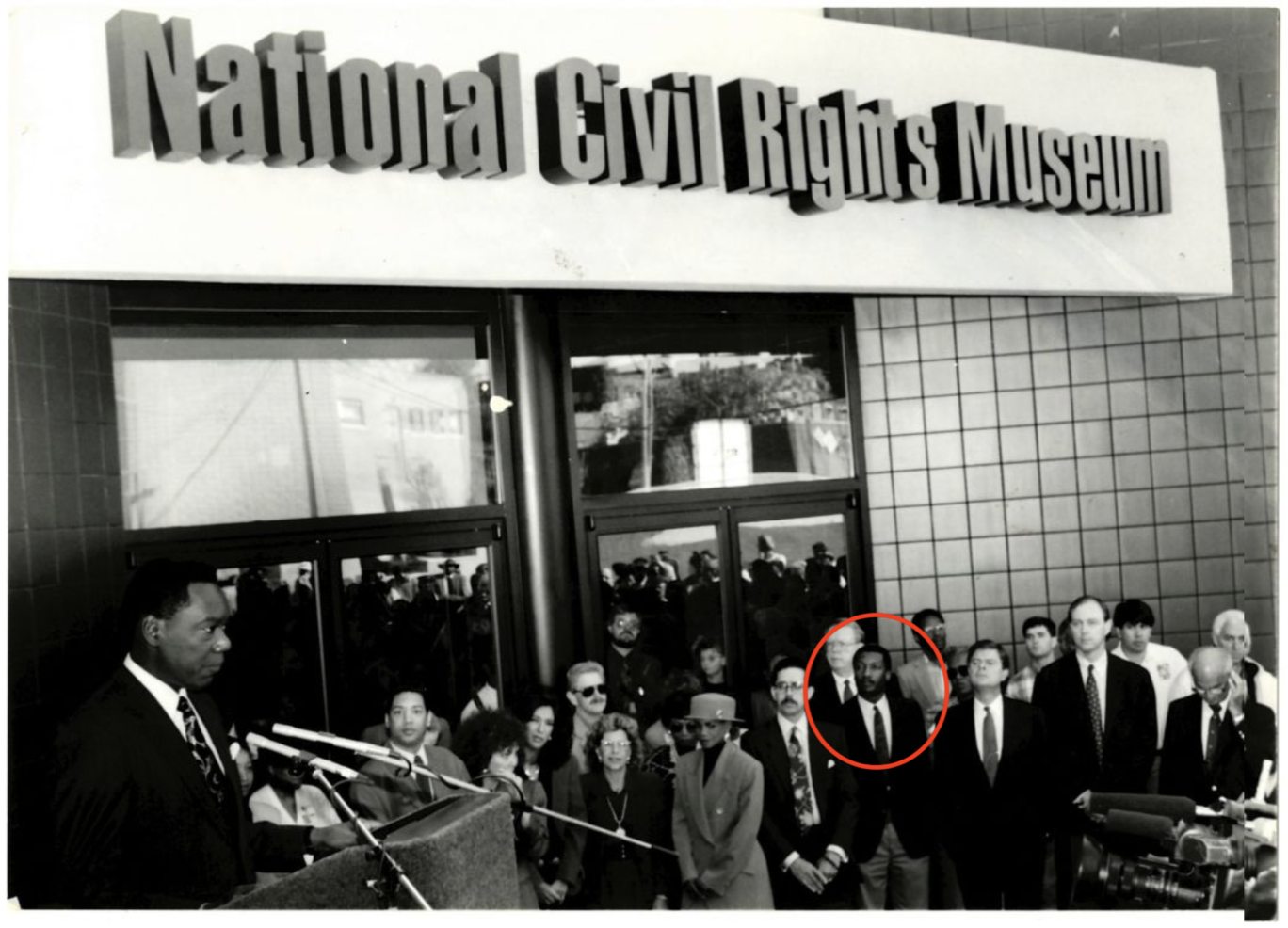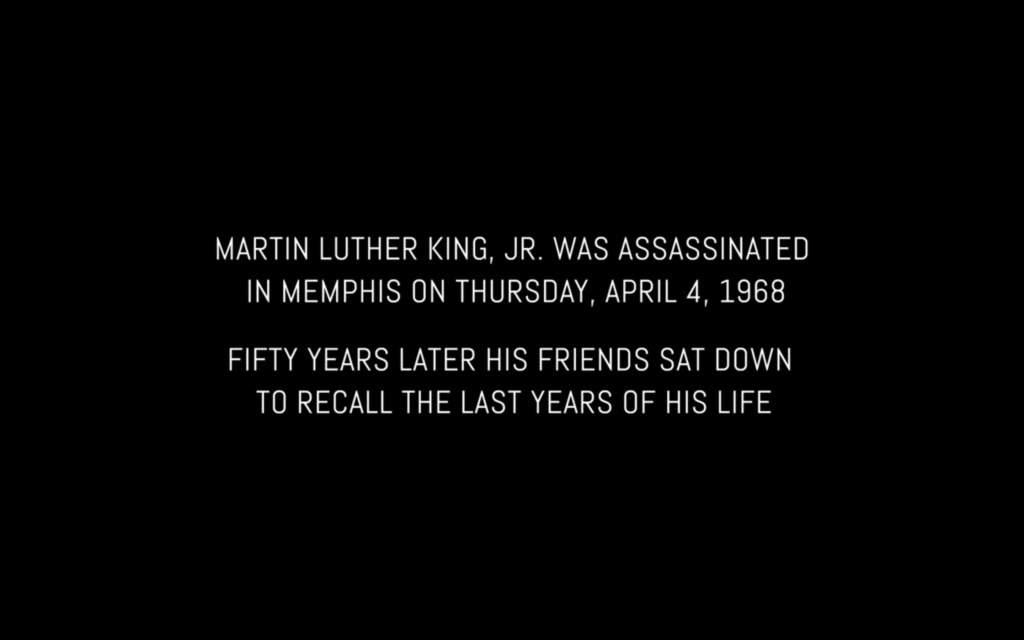
It started as an outward journey.
I watched a documentary and got to the inevitable part where Rev. Dr. Martin Luther King, Jr. was assassinated in my hometown in April of 1968. Not for the first time, I winced. “Why do we always have to be this?” is what I thought. And a thought became an idea. An idea became a proposal and, many months later, it is almost a play.
It started with that first question. “Why do we have to be this?” But that morphed into “Why are we this?” and then again into “Is there a way to not be this?” and “How can we not be this?”.
I set out to interview Memphians and find out. The thing is, it’s not what I thought it would be. Because now, the journey isn’t so outward, and the central question is much simpler (yet all the more complex): “What is this?”
***
My understanding of interview-based plays was that one must investigate something and project the findings outward. There are no rules in making investigative theatre per se, but that seemed to be the general flavor. So, when my interview process started taking me further and further inward, I wasn’t sure what that meant. I kept trying to find ways to be objective, to keep myself out of it.
Eventually, I found out that wasn’t quite possible. But more than that, it just wasn’t as valuable. I wasn’t just investigating what a city felt or what its citizens felt, I was investigating what I felt. What I’ve long felt and couldn’t articulate. At least not alone.
***
This journey started a few years back in the fall of 2013. During my senior year of undergrad, I took a class on Multicultural Children’s Literature and did a final project on representations of Dr. King in children’s literature. I found a lot of research that suggested where you live can dictate what you learn about Dr. King. Yet, in a way I didn’t understand until the project was over, I’d already known that. Growing up in Memphis taught me that year after year. A city that can’t get away with only commemorating January 15—which is why we commemorate April 4, too. We have regular NBA tribute games, concerts, awards, oratorical contests, reminder after reminder after reminder of the role we never chose to play but live with. I already knew that where you live dictates what you learn because I’d already seen what the weight of racism could do. I knew what that weight could steal. It was stealing from Memphians every day.
Yet it felt so wrong to feel that. It felt like a betrayal to say that the city I loved was suffering even though I knew that it was. It felt like a betrayal because, so often, people beyond Memphis don’t have much good to say about it. I never wanted to say something that would bring more weight. Aren’t we carrying enough? But part of me needed to know that I wasn’t alone.
I guess it isn’t so strange after all that I had to thrust myself forward to bring this play to life.
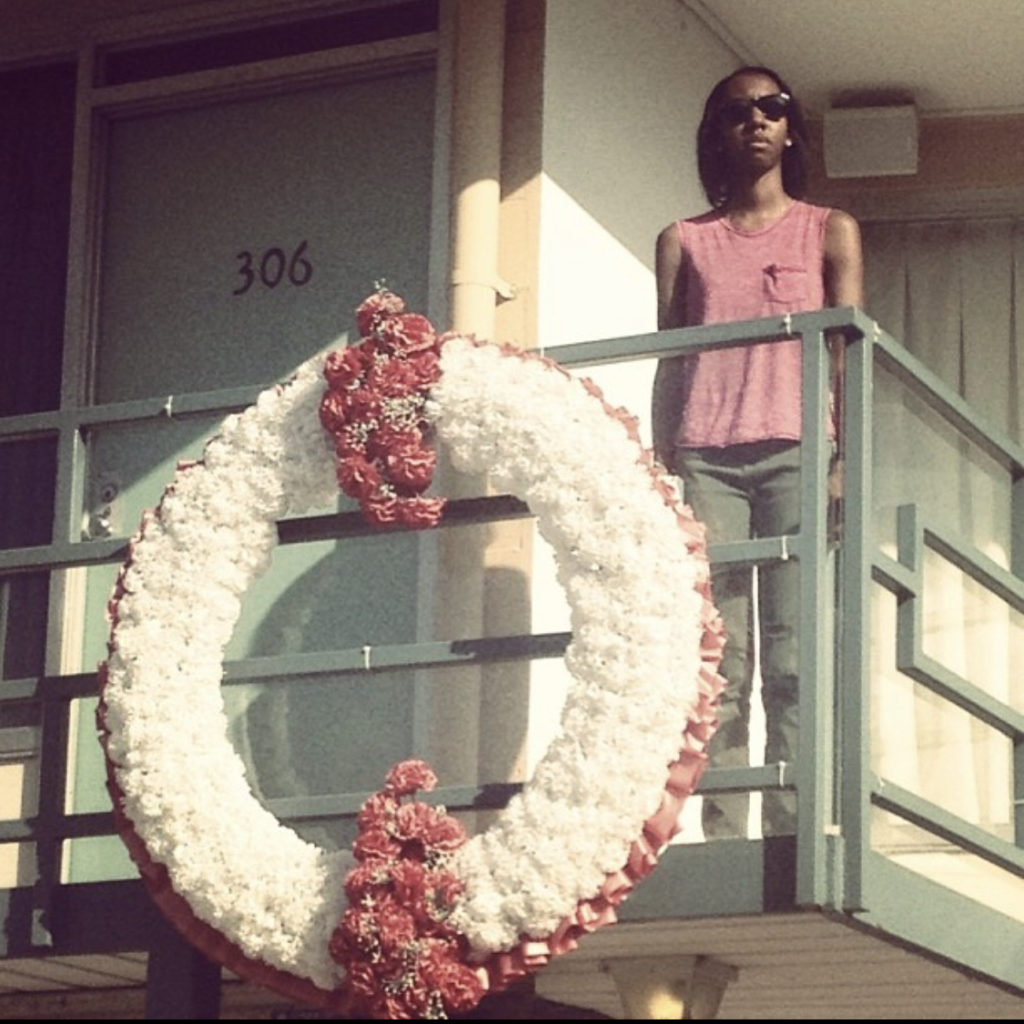
***
It all becomes very fragmented, doesn’t it? I’m spending all this time trying to understand the impact of one moment, but it’s like trying to catch smoke in a jar. It happens, and for a moment the smoke is there, but what becomes of it over time? What, if anything, will be left to see?
But this isn’t smoke in a jar. It’s a life taken and a city taken aback. A city constantly being taken back. And back. And back. And citizens who are torn between honoring what’s behind them and addressing what’s in front of them.
Even though, in many cases, what was behind them then is still somehow in front of them now. Memphis is still stratified across the same lines as it was in 1968: race, class, education, and geography. And they all blend together—Memphis is the only majority Black city (and one of two majority Black counties) in the state of Tennessee, but Memphis also has two mayors (Memphis City and Shelby County) and had two school districts for all of my public school education (Memphis City and Shelby County—now the unified Shelby County). You can likely guess the what, where, and why of those “lines” from that alone. The divisions were always there, but they became geographically codified in the 1970s with the Shelby Country Restructure Act. Just a few years after the assassination.
***
The first people I interviewed were my parents. My mother was born in Tennessee and raised in Indiana but has lived in Memphis for almost 40 years. My father is a native Memphian. I knew they’d have fascinating things to say because I know them. Working smarter, not harder right? And their interviews were great. Then, I didn’t fully know where to go. So I went to my older sister and brother-in-law (raised in Atlanta). Equally great. Then where?
A pattern emerged. I hit those with the fewest degrees of separation first. And then…only. Because, as I interviewed the one or two-degree folks in my life, I began to see the scope of my question fully blossom. Through talking to people I was close to, that I cared about, I was seeing a different side of the personal perspectives I’ve built up over time. These are the people who have been there while my perspectives were being formed, so it only makes sense that they could help me unpack the familiar in ways I couldn’t on my own. Somehow, after interviewing them, the reverberations of Dr. King’s assassination weren’t simply political anymore. It wasn’t just about our government or the sanitation strike or race in America. It was about basketball. And the music scene. And real estate. And theatre. And food. And museums. And journalism. It was through revisiting and reinterrogating something we all knew so well, something we’d waded through together, that I could see all the kaleidoscopic sides to it. I was seeing my city, associations, and relationships anew, and myself along with it.
I didn’t know how much until I stumbled upon something while doing research. I found a photo of the National Civil Rights Museum’s opening. The museum, the former Lorraine Motel where Dr. King was assassinated, is the main site of commemoration in the city. After the assassination, Downtown Memphis was largely abandoned. The owner of the motel had kept a makeshift memorial of sorts going for many years, but eventually, the Lorraine was set to be demolished. But Memphians came together, fought, and fundraised to create the museum so the motel wouldn’t be lost to history. One of those donors was standing in this photo. In the middle of a line of people, listening to D’Army Bailey (who spearheaded the museum’s creation) speak right outside the front doors. The donor was my father. In black and white. A year before I was born.
It was the thing that started my shift, that allowed me to see this play for the deeply personal journey that it is. It would be after I wrote the following monologue that I would include it and myself in the play directly—with a character bearing my name.
CALLEY
It’s funny.
You learn all these things.
You know them like the back of your hand.
And yet, it still surprises you when you learn more.
When you come across something that opens up a new portal.
Like my memories of the National Civil Rights Museum pre-million-dollar renovation.
How terrifying it was.
How much I wished I didn’t have to slog to this museum year after year.
Find myself face-to-face with a towering Klan robe.
Or yelled at by the fake white bus driver in the Rosa Parks bus installation.
Walk past the replica Room 306.
Know that, just outside, a man died.
It’s a lot to take in at any age.
But as a child?
It was daunting.
You don’t think memories like that can change.
And they can’t.
Not exactly.
But you grow.
And you experience more.
Grow to understand more why Black Memphians would donate their money to preserve such a thing.
Understand the perspective of someone who was alive to watch this era unfold.
So you take on a project like this.
To understand even that bit much more.
And you research.
You interview.
You go through archives.
And in those archives, you find something.
Startling.
Warm.
Familiar.
That you know like the back of your hand.
A picture.
The opening of the National Civil Rights Museum in 1991.
And right in the front.
Front and center.
You see him.
The face that looks so much like yours.
Your father.
Standing proud.
Grounded.
Attentive.
Intrigued.
And suddenly.
What [interviewee] said doesn’t feel as startling.
Our city’s absent father being uplifted and remembered by my very present one.
Taking the mantle of honor in the way he can.
And you wonder.
What is your mantle?
What is your mantle if not that?
If not the commemoration that’s always been yours?
Startling.
Warm.
Familiar.
Like the back of your hand?

***
Dr. King’s famous last speech at Mason Temple on April 3 is most well-known for his prophetic “I may not get there with you” line, but in revisiting it a different prophetic moment jumped out at me:
“…we’ve got to give ourselves to this struggle until the end. Nothing would be more tragic than to stop at this point in Memphis. We’ve got to see it through. And when we have our march, you need to be there. If it means leaving work, if it means leaving school — be there. Be concerned about your brother. You may not be on strike. But either we go up together, or we go down together.”
In many tragic ways, we did stop in Memphis. To the point where much of what children today learn about the Civil Rights Movement is effectively and colloquially called “The King Years”. To the point where the last living sanitation strikers didn’t receive their full pensions until 50 years later. To the point where the Dr. King many people “know” is one they greedily quote (rather, misquote) on January 15 while simultaneously living and acting contrary to everything Dr. King said beyond “I have a dream”.
Memphis got stuck. Has been stuck for so long. Perhaps this is my way of trying to jimmy us out a bit. We went down together when someone chose us as the site to commit a heinous act, but maybe we come up together by letting the pain breathe. Letting the grief and frustration stretch its legs. Sharing stories and perspectives we haven’t ever shared or haven’t thought about in decades.
At least, for this moment, that’s what I’m hoping I can do.
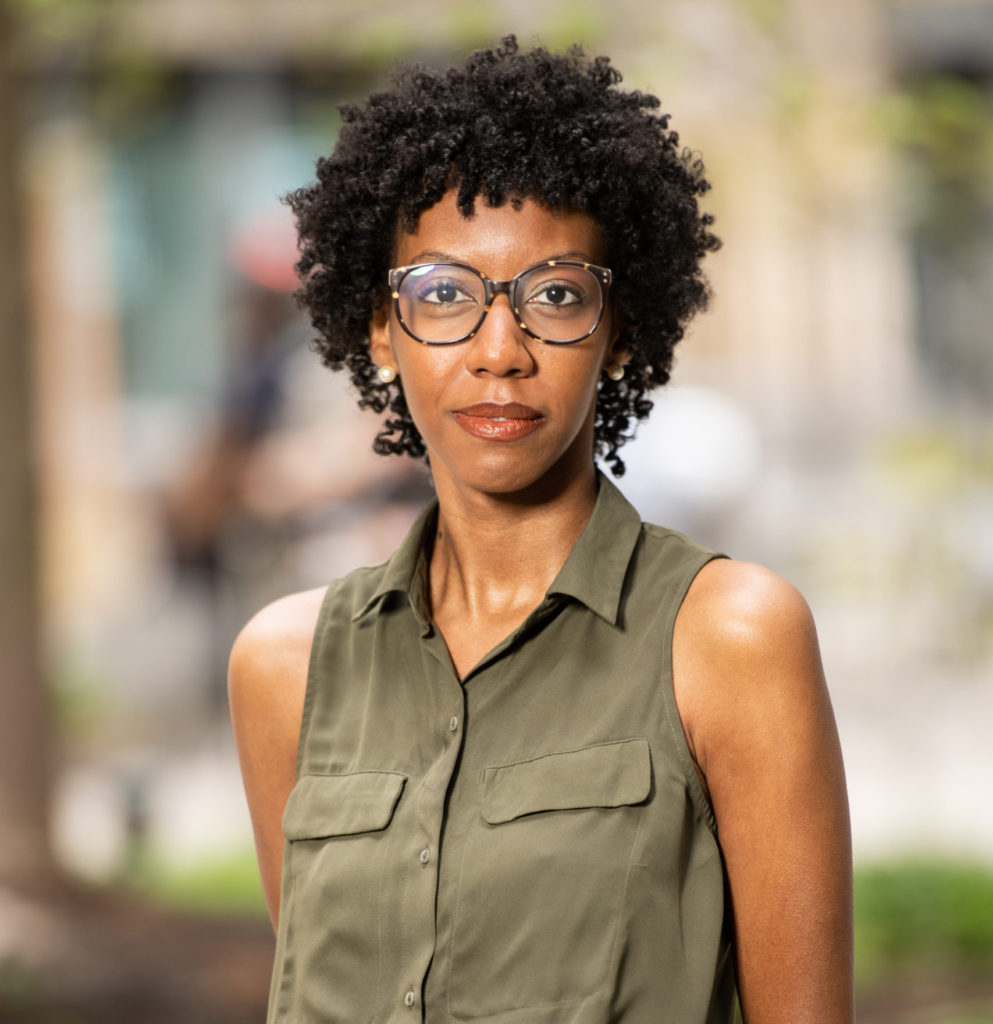
CALLEY N. ANDERSON is a Brooklyn-based playwright from Memphis, TN. Her work has been staged at several colleges and 10-minute play festivals around the country, including recent commissions by the Davidson College Theatre Department and the University of Memphis Department of Theatre and Dance. Anderson is currently a member of American Theatre Group PlayLab, Liberation Theatre Company Writing Residency Program, Clubbed Thumb Early Career Writers Group, The Civilians R&D Group, and is a Dramatists Guild Foundation Fellows alum. Beyond her writing, Anderson was previously the Showrunner’s Assistant for Season 2 of One of Us Is Lying (Peacock) and is currently Program Manager at NY Writers Coalition. BA: Davidson College | MFA: New School for Drama. calleynanderson.com
Extended Play is a project of The Civilians. To learn more about The Civilians and to access exclusive discounts to shows, visit us and join our email list at TheCivilians.org.
Author
-
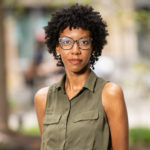
CALLEY N. ANDERSON is a Brooklyn-based playwright from Memphis, TN. Her work has been staged at several colleges and 10-minute play festivals around the country, including recent commissions by the Davidson College Theatre Department and the University of Memphis Department of Theatre and Dance. Anderson is currently a member of American Theatre Group PlayLab, Liberation Theatre Company Writing Residency Program, Clubbed Thumb Early Career Writers Group, The Civilians R&D Group, and is a Dramatists Guild Foundation Fellows alum. Beyond her writing, Anderson was previously the Showrunner’s Assistant for Season 2 of One of Us Is Lying (Peacock) and is currently Program Manager at NY Writers Coalition. BA: Davidson College | MFA: New School for Drama. calleynanderson.com
View all posts


